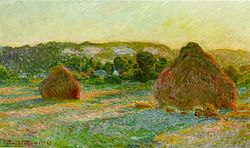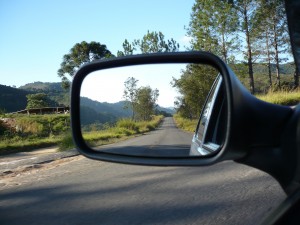Let the battle begin!
So I’m suited up for fighting dragons, my foot is in the stirrup (or my butt is in the chair in this case) but to be honest, I’m a bit rusty. I’m blocked. Stuck. I opened up my latest novel-in-progress, I Feel For You (IFFY in short form), and I wasn’t even sure where I had left off.
What to do, what to do. Well, even though I might be a slow learner, I do eventually get it, and when I do, I even manage to extrapolate to other situations. There are certain lessons I learned in my painting classes that I thought I might be able to use in the writing field, so here we go.
1. Get a different/broader perspective. This was extremely helpful for me in painting.
I’d come home from painting class not sure if I liked anything at all about what I’d painted. First thing I’d do is prop the painting up on our corner shelf and leave it there for a day or two, looking at it from a distance and in different lighting situations. Seeing the painting from a distance had a way of helping me pinpoint what was working and what wasn’t.
So how does this work for writing? Nope, I’m not talking about putting your computer screen so far away that you can’t read it anymore. Nor am I talking about throwing your pages down the basement steps.
- Print it out and read through the whole thing WITHOUT a pen in hand. For shorter pieces, chapters, or scenes, carry it with you throughout the day and read it several times. For novels, read it once without a pen and then a second time with the pen in hand.
- Record your piece of writing and then listen to it in the car (where you can’t jump in and start “fixing” words and sentences.) This is a great way to “hear it different.” I use Audacity to record (there are definitely other audio editor software you can use), then I save it in my iTunes, transfer it to my iPod and listen in my car on the way to and from work.
2. Use a different medium or tool. In painting that could be a different brush or
switching to a pen or some other type of paint. In writing, just switching from writing on the computer to writing on paper (or vise versa) can make a big difference. I’m older than dirt, so for me, computers feel more… serious, final, published. So sometimes when those dragons are loud and breathing fire down my neck, I find it easier to go back to writing on paper for awhile. After all, no big deal if I mess up there. I’m going to have to type it on the computer at some point anyway.
3. Don’t go for the masterpiece on the first try. This came about because the first time I took a painting class at Kendall, I had this idea I was going to come home with paintings I would want to hang on our walls. Needless to say, that didn’t happen. My husband noticed my disappointment and reminded me of how many times Monet painted haystacks. “You can try it more than one time,” he said. Such a simple thought but oh so freeing. When it doesn’t have to be hang-worthy the first time, I felt free to try new things, to be bold, and to go for it. After all, I could always re-do it. Ironically enough, my painting improved enough I even considered hanging one up this year.
haystacks. “You can try it more than one time,” he said. Such a simple thought but oh so freeing. When it doesn’t have to be hang-worthy the first time, I felt free to try new things, to be bold, and to go for it. After all, I could always re-do it. Ironically enough, my painting improved enough I even considered hanging one up this year.
- Remember Anne Lamott’s advice in her book, Bird by Bird, about the Sh—- First Draft. Sloppy Copy.
 Whatever you call it, just go for it. Focus on the story, the character, the action–whatever the skill it is you want to try and remind yourself that this is just your first haystack in the series.
Whatever you call it, just go for it. Focus on the story, the character, the action–whatever the skill it is you want to try and remind yourself that this is just your first haystack in the series. - Make a mess–clean up later. Definitely works with paint. Works equally well with words.
4. Don’t get stuck in one area; keep moving around the page.This was a biggie for
me this past summer. I would be working on a painting and find myself getting really detailed in one area whereas I had pretty much ignored other parts of the picture. (It really, really bites when I find out what I spent all that time on doesn’t fit with the rest of the picture–which I would have known had I roughed in the whole thing first.) My instructor frequently had to come around and remind me to MOVE ON. Great advice for writing too.
- Keep moving. Don’t get stuck revising and adding all sort of detail on the first chapter (or first line). Move on. You will come back and add more detail after the whole page (manuscript) has been given a nice coat of words. And by then you might even know what those details ought to be.
5. Start. Anywhere. Now. Just start. As I learned in art class, you have to put paint on the
page. Just dive in and put some color on that white page. Works the same way with writing. Put a word on the page, and then another one. Who cares if it is the right word? Who cares if it is the “beginning” of the story? Just START.
So there you go–and here I go. Happy writing.
All images are from stock.xchng. Check it out.







Words of wisdom. Well said.
This is exciting, inspiring, vibrant and artful. Did I say inspiring and helpful?
Matt,
I saw you have a website as well! Very cool. I love the photo of you playing your guitar. Couldn’t get the writing excerpts to open yet. I’ll try again later.
SM
Good points, Sarah. Completely relevant, considering most of us condider writing as painting with words. There are multiple colors of yellow paint as there are words. Does anyone not see mustard, daffodill, or black-eyes Susan?
I am starting a piece about a small stream that transformed me from a novice to a fisherman. It’s amazing how our brain works. I recall every pool, riffle, undercut bank, or log jam. I smell violets, see gold buttercups and adder tongues, aka trout lilies, and nodding trllium; mayapples blossom under umbrella leaves. I hear the wind testing the old pine, the current’s gurgle and the silence of solitude. I see bejeweled brook trout and can replay almost every catch. I haven’t walked or fished this creek in over 40 years; I know it has changed. But, if I close my eyes it all comes back. In a world that is changing too rapidly for me, I need to hang on to sacred memories and pristine environs.
Keep posting good thought provoking ideas.
Larry,
I was thinking about your last comment. I wonder if you could reach those other outdoors people online? Maybe a blog? Seems to me that might be a way for others who love the outdoor experience to find your writing–and for you to find an audience. Your writing evokes such rich pictures.
Thanks for commenting. Nice to know someone is reading what I wrote!
SM
Mmmmmm …. Interesting thought, Sarah. I have thought of that before but I’m not sure how to get started. I’ll check into that. And yes, I do enjoy reading your perspective on writing.
Wow! I’m not sure these words could have been any more timely. The self-doubt gremlins (and maybe the lazy gremlins, too) have backed me into a corner lately. What a great reminder that you can always revise, but you can’t revise what isn’t on the page. Even though I’ve written this beast before (many, many times over), I need to remember that I’m revisiting First-Draft-Land and it doesn’t have to be perfect. Thanks for the thoughtful, inspiring words.
I hear you. Know this, have fought this, still need to be reminded. Again and again.